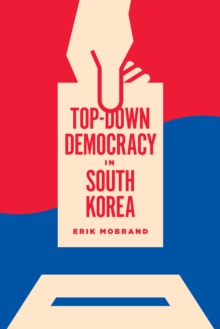
Offspring of Empire : The Koch'ang Kims and the Colonial Origins of Korean Capitalism, 1876-1945 Hardback
by Carter J. Eckert
Part of the Korean Studies of the Henry M. Jackson School of International Studies series
Hardback
Description
According to conventional interpretations, the Japanese annexation of Korea in 1910 destroyed a budding native capitalist economy on the peninsula and blocked the development of a Korean capitalist class until 1945.
In this expansive and provocative study, now available in paperback, Carter J.
Eckert challenges the standard view and argues that Japanese imperialism, while politically oppressive, was also the catalyst and cradle of modern Korean industrial development.
Ancient ties to China were replaced by new ones to Japan - ties that have continued to shape the South Korean political economy down to the present day. Eckert explores a wide range of themes, including the roots of capitalist development in Korea, the origins of the modern business elite, the nature of Japanese colonial policy and the Japanese colonial state, the relationship between the colonial government and the Korean economic elite, and the nature of Korean collaboration.
He conveys a clear sense of the human complexity, archival richness, and intellectual challenge of the historical period.
His documentation is thorough; his arguments are compelling and often strikingly innovative.
Information
-
Available to Order - This title is available to order, with delivery expected within 2 weeks
- Format:Hardback
- Pages:416 pages, 61 illus.
- Publisher:University of Washington Press
- Publication Date:03/08/2015
- Category:
- ISBN:9780295997742
Other Formats
- Paperback / softback from £28.39
Information
-
Available to Order - This title is available to order, with delivery expected within 2 weeks
- Format:Hardback
- Pages:416 pages, 61 illus.
- Publisher:University of Washington Press
- Publication Date:03/08/2015
- Category:
- ISBN:9780295997742










